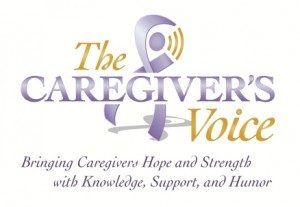Emotional or psychological trauma is a serious issue that can affect anyone at any age, and while some symptoms can present themselves slightly differently from person to person, many features can indicate that someone, including yourself, could be struggling to cope with a traumatic experience. This article will share some common signs of psychological trauma and what can be done to cope with it.
1. Hypervigilance

It’s very common for people to feel anxious, fearful, and on edge due to trauma, and being jumpy, easily startled, or looking over one’s shoulder are some textbook signs that someone could be struggling with PTSD or a related condition.
However, those who suffer from trauma may have a heightened sense of danger even when there is no visible threat. This can be incredibly exhausting for these individuals, and this leads to the next issue.
2. Mood Changes
People who are experiencing trauma can show a wide array of different emotions and changes in their moods. On one end, individuals may show signs of depression and appear sad or numb, and other times, they can become very angry and irritable and even have outbursts.
In order to cope with these feelings and emotions, it’s not unusual for people to resort to subconsciously using defense mechanisms. For example, one person might be in denial that a traumatic event ever happened to them, and another might take a more aggressive stance and project their frustrations onto other people, animals, and objects.
3. Sleep & Concentration Issues
Sleep habits are one of the most common aspects of a person’s that gets affected when they come up against a mental health issue, especially trauma.
Racing thoughts and alertness can make it difficult to fall asleep, and this can cause chronic insomnia. When one eventually goes to sleep, nightmares, which often include images of the traumatic event, can disrupt it and make it difficult to return to sleep.
4. Guilt & Self-Blame
Survivors of trauma are known to blame themselves for a traumatic event occurring, and unfortunately, it especially happens to those who have experienced abuse at the hands of another individual, including former romantic partners.
For example, some people believe that if they behaved a certain way, perhaps their situation could have been avoided. However, additional factors can cause someone to feel this way, including gaslighting and excessive criticism.
5. Withdrawal & Avoidance
Lastly, someone struggling with the effects of trauma often isolates themselves from the things that they enjoy, including friends, family, and hobbies.
Additionally, a prevalent symptom of trauma is that people will actively avoid situations that may trigger stress and anxiety, or worse, a flashback of events. Reliving their memories can be very distressing, but unfortunately, limiting contact makes recovering from trauma much harder.
How To Heal From Emotional Trauma
The thoughts, feelings, and memories of a traumatic event can be very persistent, but even those with the most severe symptoms of PTSD can learn how to cope and live happier lives.
Since trauma affects the aforementioned cognitive abilities, therapy is typically the first course of action to treat individuals who are showing symptoms of psychological and emotional trauma.
One of the most popular methods of helping people overcome trauma is through a technique called cognitive-processing therapy, which can help people change the way people think about their trauma and the manner they respond to how it makes them feel.
To find a therapist who can help you or a loved one understand and overcome trauma and its symptoms, visit BetterHelp today to connect to a licensed professional. You can also find numerous articles relating to PTSD and trauma to further educate you on this topic.
In some cases, medication may also be prescribed by a doctor or psychiatrist to make symptoms more manageable, especially the distress that can come from fear of having a flashback. It can make conquering those avoidance behaviors easier, and therefore, alter your thoughts and behaviors.
Conclusion
No matter how it happens, trauma can disturb a person’s way of life by creating a host of disruptive symptoms that affect their mood and wellbeing. However, by recognizing the signs, individuals can begin by taking the first step and start getting help. By doing so, people can see tremendous improvements and live their lives without fear.

Photo Credit: iStock
The post 5 Signs of Emotional Trauma To Look Out For appeared first on The Good Men Project.
Original Article










